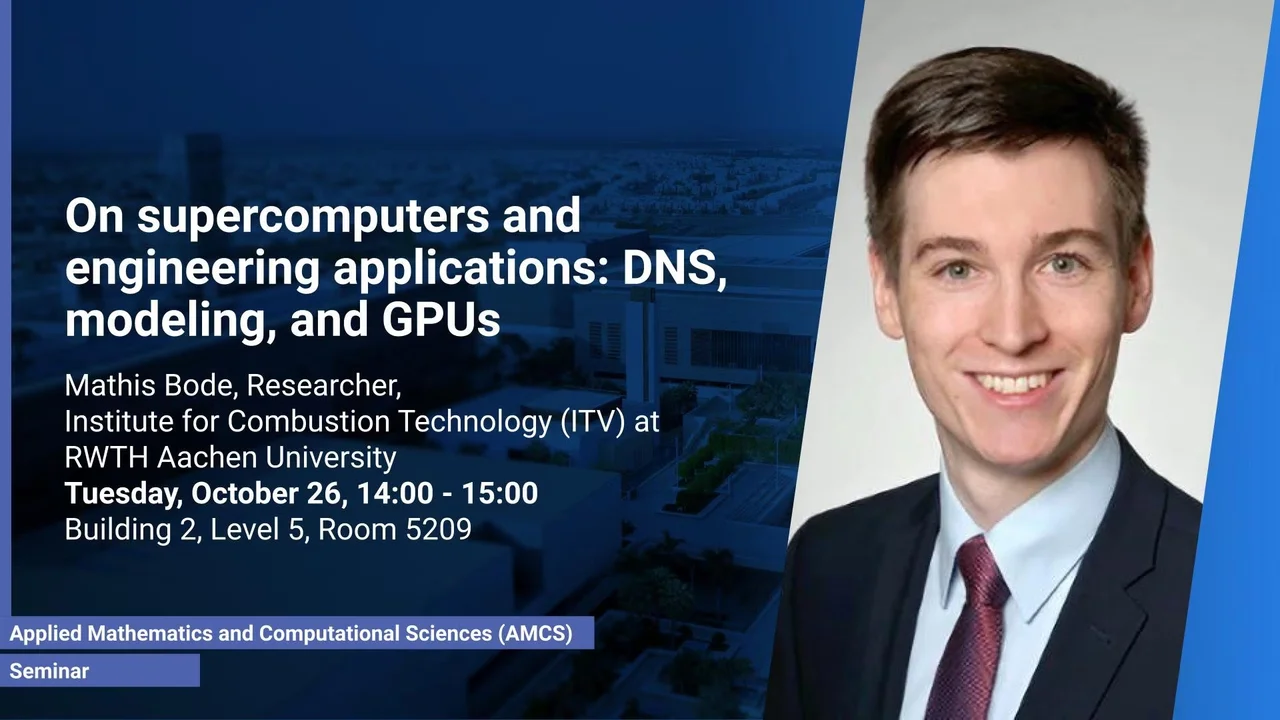
On supercomputers and engineering applications: DNS, modeling, and GPUs
- Mathis Bode, Researcher, Institute for Combustion Technology (ITV) at RWTH Aachen University
B2 L5 R5209
The numerical solution of multi-physics problems relying on the Navier-Stokes equations has kept multiple generations of supercomputers busy. For fundamental problems, computational fluid dynamic aims to resolve all relevant time and length scales, which is then known as direct numerical simulation (DNS).
Overview
Abstract
The numerical solution of multi-physics problems relying on the Navier-Stokes equations has kept multiple generations of supercomputers busy. For fundamental problems, computational fluid dynamic aims to resolve all relevant time and length scales, which is then known as direct numerical simulation (DNS). DNS is able to give deep insight into basic processes but more complex problems typically require modeling of some parts of the scale-spectrum, since resolving multi-scale phenomena becomes too expensive for current and near-future supercomputers. One way to develop such models is based on data-driven deep learning methods employing DNS data of fundamental configurations. We provide examples of DNS-based analyses and also show how a systematic model development framework based on generative adversarial networks (GANs) and high fidelity DNS data can be used to derive accurate and general models. We furthermore consider how to exploit the increasing amount of GPUs in current supercomputers, which are natural for data-based applications, but challenging to extract performance from in many simulation cases.
Brief Biography
Mathis Bode is a researcher at the Institute for Combustion Technology (ITV) at RWTH Aachen University in collaboration with Heinz Pitsch. His interests include high performance computing, data analytics including deep learning and artificial intelligence, and computational fluid dynamics. On one hand, Mathis aims to develop new numerical and methodological approaches to decipher fundamental phenomena, such as the effect of intermittency on scalar mixing and the dominant processes during cavitation formation. On the other hand, he aims for impact on applications such as racing car engines and aerospace vehicles. Mathis’ research has been honored with multiple awards from the Society of Automotive Engineering, the EU PRACE consortium, the Juelich-Aachen Research Alliance, and the HLRS Computing Center in Stuttgart.